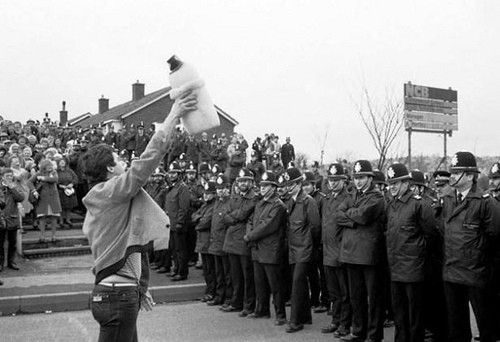Living wage: Does return to incomes policies raise spectre of a Thatcher-era wage beat down?

One of the verdicts during post-mortems on the 2007-08 financial crisis was the economics profession, and policy makers generally, seemed to have lost touch with economic history. At the Strand Group, King's College, London, they are taking the topic seriously, with a series of seminars in which government officials, politicians and journalists such as your correspondent have been taking part.
When we were going through the decades since the end of the Second World War it came as quite a shock to some of the younger students to learn, in these deflationary times, that the rate of inflation in the UK reached over 25% at one stage in 1975. For the record, the peak, for what was then known as the retail prices index, was 26.9% - the increase between August 1974 and August 1975.
I recall having lunch around that time with Sir Kenneth Berrill, head of what was known as the No. 10 Downing Street Think Tank. The great man arrived at the table and said: "I got my slide rule out this morning. At this rate of inflation the miners will all be on a million pounds a year in no time."
Well, that didn't happen. A variety of stratagems were used to bring the rate down and, although seriously mistaken policies subsequently allowed the rate to rise to over 20% in 1980, no miner ever earned anything like £100,000 a year, let alone a million.
Miners' wages had certainly been part of the problem. Basically, what happened in the early 1970s was that the oil shock of 1973-74 imparted a sharp upward twist to an inflationary spiral that had been set off by trades unions discovering their bargaining strength. As miners were in the energy business, they were in a strong position to argue that, once the price of oil had quintupled they too should have a share of the spoils created by the oil producers.
All it needed was for the 1970-74 government of Edward Heath to make one of the worst ever mistakes in economic history: in a well-intentioned move they had linked wage settlements to the cost of living just as oil prices were about to take off.
An attempt at a compromise over a wage claim by the miners failed; Heath called an election on the question of who governed the country - the prime minister or the miners? The answer was not Edward Heath, and back came the Labour Party under Harold Wilson, who had backed down in 1969 from an attempt to legislate to control trade union excesses. The miners were eventually and rather brutally, brought to heel by Margaret Thatcher, who took them on during their infamous strike of 1984, an won.
Now, one of the consequences of the acceleration of inflation in the early 1970s was the rise of the monetarist school of economists, who argued that Keynesian policies had failed to control inflation. The last resort of us Keynesians was seen to be incomes policies - policies to hold down wage demands, either on voluntary basis or through legislation.
After Heath, the Wilson government tried its own version of incomes policies, and indeed by the time the Thatcher government came into office in 1979 the rate of inflation was down to 10% - still high by today's standards, but not high as 12 months later when it peaked at 21.9%, as a result of the abject failure of monetarism to control it.
Any fool can control inflation by making enough people unemployed or frightened that they may be next
The Thatcher government's response was a dose of "the old time religion": massive deflation. Any fool can control inflation by making enough people unemployed or frightened that they may be next.
But once recovery had set in, then inflation started creeping up again, reaching 10.9% in late 1990. Attempts to align the UK with the German inflation rate via the exchange rate mechanism proved a disaster, so we ended up with the new fashion: inflation targeting by the Bank of England, via changes in interest rates.
The obsession with inflation targeting led policy makers and most economists to take their eyes off the ball, and along came the banking crisis. Then we were treated to quantitative easing.
The irony now is that we are back to incomes policies, but incomes policies to raise the rate of inflation. Hence Chancellor George Osborne's budget attempt to get employers to raise the minimum wage to what is now called a living wage.
The question is: will this be any more successful, in a different direction, than certain earlier attempts to put the lid on wage demands?
William Keegan is a journalist, academic, and the senior economics commentator at The Observer. He has published his latest work – Mr Osborne's Economic Experiment - Austerity 1945-51 and 2010 (published by Searching Finance).
© Copyright IBTimes 2025. All rights reserved.






















